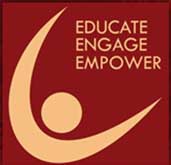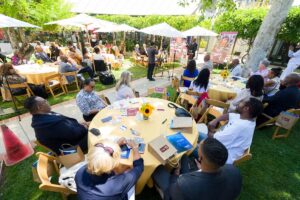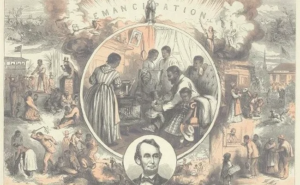Event Program
WELCOME
FOUNDER’S REMARKS
Harry McElroy
Co-Chair, Empowerment Congress
Mark Ridley-Thomas, PhD
Founder, Empowerment Congress
MOMENT OF SILENCE IN HONOR OF REV. JAMES M. LAWSON, JR.
KEYNOTE: What Juneteenth Can Teach Us About Climate Justice
Denise Fairchild, PhD
Founder and Executive Director Emerita, Emerald Cities Collaborative
CLIMATE POLICY AND COMMUNITY INITIATIVES PANEL
Tavis Smiley, Moderator
Talk Radio Host and Chief Visionary Officer, KBLA TALK 1580 Radio
“Back to Our Roots: A Cultural Response”
Karen Mack
Founder and Executive Director, LA Commons
“Back to the Land: Black Towns and Settlements”
Jacqui Patterson
Founder and Executive Director, Shirley Chisolm Legacy Project
“Back to the Commons: Food Resilience in Urban Communities”
Pastor Eddie Anderson
Co-founder and Chief Executive Officer, Partnership for Growth Los Angeles Community Development Corporation
CLOSING REMARKS
Gloria J. Davis
Co-Chair, Empowerment Congress
CELEBRATION LUNCH FEATURING ENTERTAINMENT BY UPWARD MOBILITY
Juneteenth 2024 Event Resources
To reduce our carbon footprint and environmental impact, we are sharing resources digitally to limit printing. Additional resources will be shared following the event. Please consider these articles shared by our presenters:
-
Patterson, Jacqueline and Denise Fairchild, Freedman Settlements Remember the past, Heal in the Present, Imagine the Future
-
Freedmen Settlement Resolution/Sign-ON Campaign
-
Fairchild, Denise, Juneteenth Can Be a Call to Action on Climate and More
-
Fairchild, Denise, What Can Abolitionists Teach Us about Climate Change, 2016
-
Howard, Sage. Slavery Fueled Our Climate Crisis: Here’s How Reparations Can Slow It Down, August 2022 (updated Jan 30, 2024).
-
Dr. Jessica Gordon Nembrand, Collective Courage
-
To Truly Build Back Better, We Need a Justice 100 Solution, The Hill.
What is Juneteenth?
Schools across America teach that “Abraham Lincoln freed the slaves” when the Emancipation Proclamation was issued on January 1, 1863. This complex document strategically granted freedom to the enslaved Black people specifically in Confederate states not under Union military control as of the Proclamation’s date. Though the Emancipation Proclamation is lauded as a critical document for human freedom, its conditions made the true emancipation of enslaved Black people extremely challenging.
The provisions in the Emancipation Proclamation that offered freedom to Black slaves were directly related to the hope for a Union victory over the Confederacy in the Civil War. President Lincoln expressly offered freedom to those who were enslaved in states that had seceded from the Union, with the exception of those territories that had (at the time of the Proclamation) surrendered to Union power. It is no wonder, then, that slaves in Texas were not informed of the Emancipation Proclamation until June 19, 1865 when General Gordon Granger issued General Order No. 3, declaring the institution of slavery dead in Texas.
Though the official abolition of slavery, as practiced in the United States and the Atlantic Slave Trade, came with the ratification of the 13th Amendment on December 6, 1865, Juneteenth marks a critical milestoe on the journey to emancipation. Juneteenth is cited as the oldest known celebration commemorating the end of slavery in the United States, with its start in 1866 in Texas. Today, we continue to celebrate this monumental step in the journey to freedom with celebration, thoughtfulness, and an ongoing commitment to reaching true emancipation.













